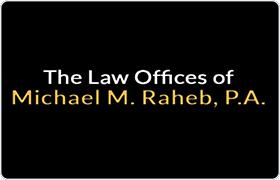Nokomis RICO Act Lawyer, Florida
Sponsored Law Firm
-
 x
x

Click For More Info:
-
Law Offices of Michael M. Raheb P.A.
2423 First St Fort Myers, FL 33901» view mapCriminal Defense Law Legal Problem? Call Us 24/7
At the Law Office of Michael M. Raheb, we strive to ensure each of our clients receives the individual attention and representation necessary to obtain an optimal outcome.
800-890-8981
Not enough matches for Nokomis RICO Act lawyer.
Below are all Nokomis Criminal lawyers.
Robert Harrison
Divorce & Family Law, DUI-DWI, Criminal, Defamation & Slander
Status: In Good Standing
John Casella
Federal Trial Practice, Criminal, Civil Rights, Personal Injury
Status: In Good Standing Licensed: 42 Years
Alan Brent Mcpeek
Commercial Real Estate, Federal Appellate Practice, Family Law, Criminal
Status: In Good Standing Licensed: 31 Years
Rose Marie Price
Real Estate, Government, Criminal, Administrative Law
Status: In Good Standing Licensed: 51 Years
 Michael M. Raheb Fort Myers, FL
Michael M. Raheb Fort Myers, FL Practice AreasExpertise
Practice AreasExpertise
